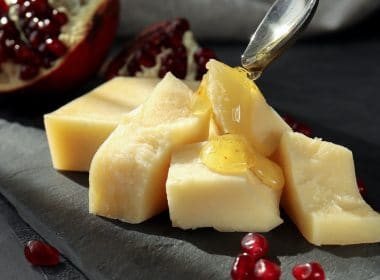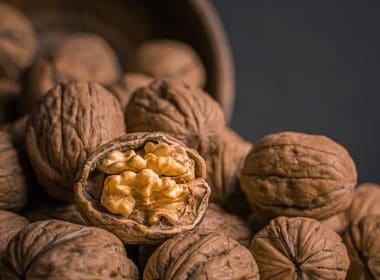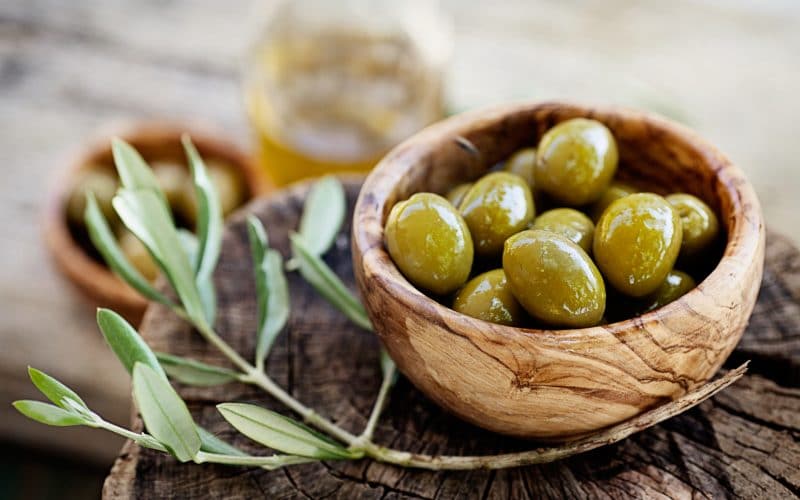Are Olives Fattening?
We discuss are olives fattening? including the pros and cons of what fats are good vs bad. Read the full article to ensure you understand all of the benefits and non-benefits of olives.
The first thing we must evaluate when determining if olives are fattening is to look at their ingredients (large canned olives):
- 10 olives is about 60 calories
- Carbs 6.4 grams
- 0 grams of sugar
- Protein 0.8
- Fiber 3.3 grams
- Fat 10.8 grams
Fats:
- Saturated:1.42 grams
- Monounsaturated:7.89 grams
- Polyunsaturated:0.91 grams
Olives also contain monounsaturated fats. These have lower calories than the other saturated fats and thus help in reducing the amount of calories you intake. Monounsaturated fats have been known to lower the risk of heart diseases and decrease the risk of cancer.It also contains vitamins and dietary fibers. These help in protecting your heart and keep your blood vessels pliant. This is the reason why people who consume this oil regularly live longer.
Vitamins & Minerals Olives Contain
Vitamin E, Iron, Copper, Calcium, Sodium (Is Salt bad for you?).
Olives are a foundation of the famous Mediterranean diet. They have great health benefits, especially for your heart health and olives have been known to prevent cancer.
Are olives fattening, as many people claim? This question is asked quite often by people who are aware of the nutritional benefits of olive oil. A healthy diet should include this nutritious oil to be effective.
The majority of the population believes that olive oil is fattening because it contains fatty acids. They make it high in calories that result in weight gain. However, they have only one calorie per gram. These fats are immediately converted to energy and not stored as fat.
Apart from being effective in losing weight, it can also help in maintaining a healthy weight loss. It is rich in monounsaturated fats, which can be easily absorbed into the bloodstream. This is the reason why it is so good in helping people to control their blood pressure.
So, are olives fattening? The answer is no. So, next time you feel sluggish, replace those calories with healthy fats from this oil.
Can Too Much Olives Be Bad For You?
Canned olives contain high amounts of sodium also known as salt which isn’t great for you. They also can contain small amounts of metal including sulfur, boron, and lithium but is well below the legal limit. Obviously, if you are eating them on pizza then they are not going to out weigh the negatives from the pizza itself. But while on a diet they go great with salads, some pastas, and just straight out of the can to curb a craving.
Lose Weight By Eating Olives?
But Aren’t Olives Fattening And Contain Fats?
Even though it is true that the olive oil, seed, and olives themselves are a source of fat, the amount of fat that you will get from one serving of olives depends on the type and the amount of fat you add to your own diet as well as the food you are eating. Thus, the question of are black olives fattening is also based on what kind of weight you are currently at.
If you are currently overweight and just want to lose some weight quickly, then adding black olives to your diet may be the most effective way to achieve this. This may seem like a strange notion, but there is a reason for it. While it seems odd that you would want to add something with fat to your diet, the reason is quite simple.
The fatty acids in olives can aid in fat loss and help you to regulate your appetite. The whole thing about fats has been an issue of contention lately, with the media continuously saying that fats will not be the same in the future, while the medical community knows that they have a hard time understanding why, when fats are the foundation of life.
Conclusion Of Are Olives Fattening?
Everyone knows that eating too many olives could be bad for you, but the number of people who know what olives are good for you is really quite small. What most people don’t know is that olive oil is great for a variety of uses besides olive oil and can be used to make salads, pesto, puree, marinades, and more.
Olive oil is a naturally preserved fat. It can be made by crushing olives in an oil mill and adding a little water to them. The grinding produces a translucent mixture, which allows the oils to be separated.
Like any food that is preserved with heat, olive oil is made with preservatives. It’s natural sugars and proteins won’t spoil as fast, so they are better at preserving the foods that they are added to. That makes olive oil a better choice than many other food preservation methods.
Olive Oil
Oils aren’t really bad for you in the same way that refined grains or processed meats are. Oils that have gone through processing tend to have more calories and fat than unprocessed oils do. However, oils that have been properly processed have many of the nutrients that the body needs, so they’re better for you than the unprocessed versions. So if you are wondering if olives are fattening? They are actually pretty good for you!
You can also use olive oil to flavor baked goods and stews. It can be used to cook with, so you’ll never have to worry about using less oil or using less flavor. Just take the time to season your food’s right and you should be able to achieve the perfect taste.
Olives are rich in monounsaturated fats, which help your body create healthy antioxidants and protect it from harmful free radicals. Monounsaturated fats may actually be beneficial for our hearts and may even lower our risk of heart disease.
In fact, a study out of New Zealand showed that people who ate a diet full of olives had a lower risk of developing heart disease than people who ate a diet that was full of carbohydrates and fat. There’s definitely a connection between olives and heart health.
Olives are also a great source of vitamin E. Vitamin E has been proven to have many positive effects on our bodies, but a lot of people have no idea that it has anti-inflammatory properties. These properties allow it to reduce swelling after being injured. We all know that inflammation is a sign of injury, but a healthy body naturally contains more antioxidants than an unhealthy one, so by eating olives you’re providing your body with all the antioxidants it needs to fight off problems that occur with being injured.






